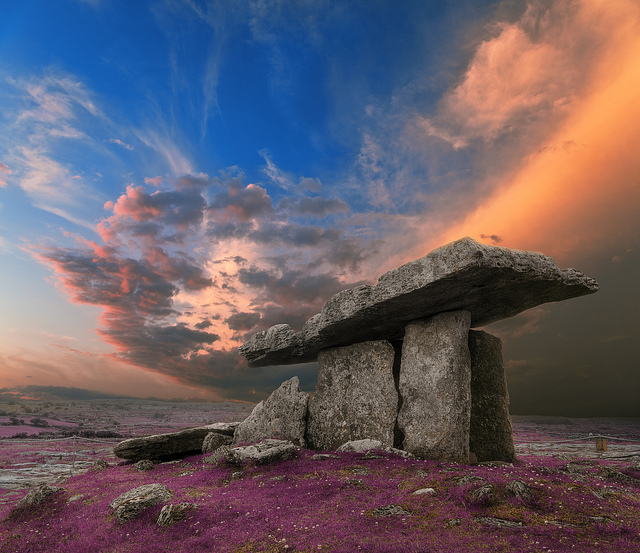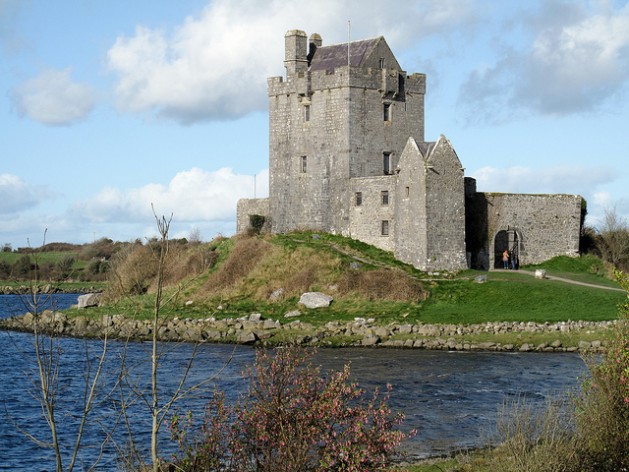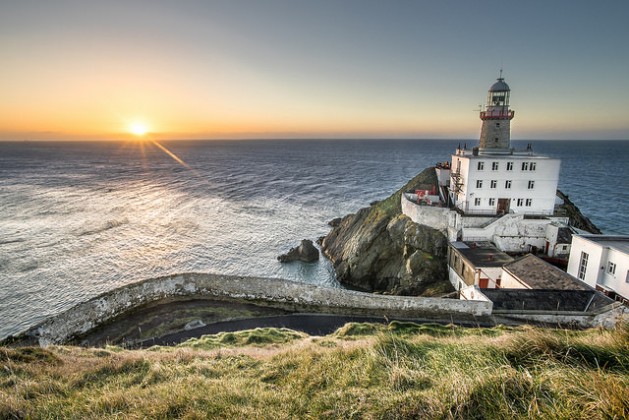
With St. Patrick’s Day just four short days away the staff at Travel Tune wanted to take you on a stunning visual tour through The Emerald Isle.
We hope you enjoy the views and come back for more travel inspiration, right here at Travel Tune.
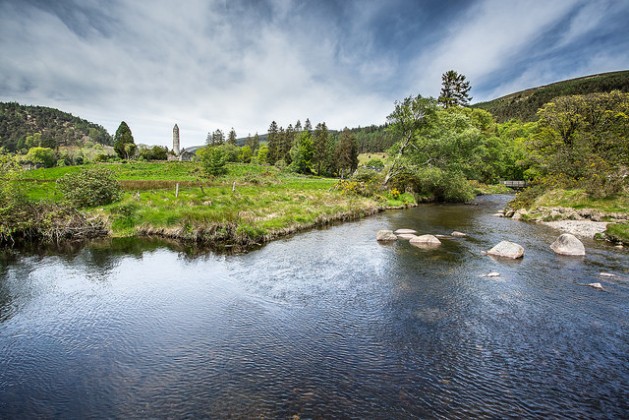
Glendalough, Wicklow, Ireland
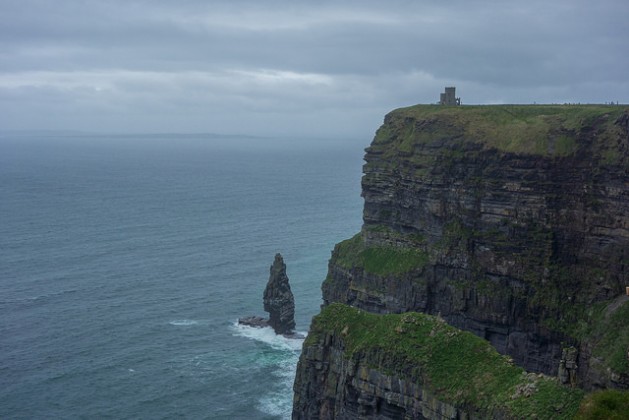
You can’t go to Ireland without basking in the glory of the Cliffs of Moher. Fortunately, Cornelius O’Brien, a landlord, lawyer and County Clare’s representative in British Parliament, built O’Brien’s Tower for the best view of the cliffs. On a clear day look for the Aran Islands, spreading themselves across the horizon of the Atlantic.
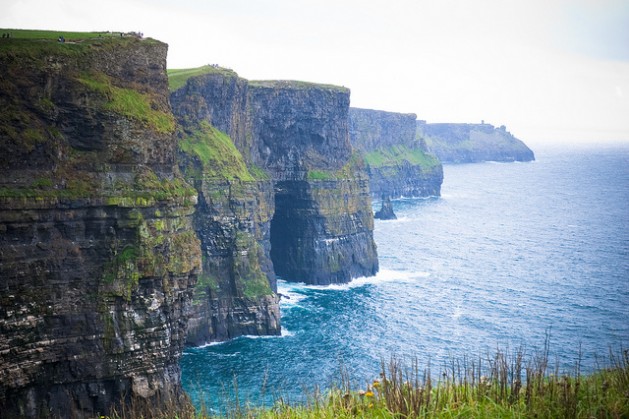
The Cliffs of Moher are the most popular site in Ireland. The grand attraction reaches 702 feet and stretches five miles along the coast of the Atlantic in County Clare.
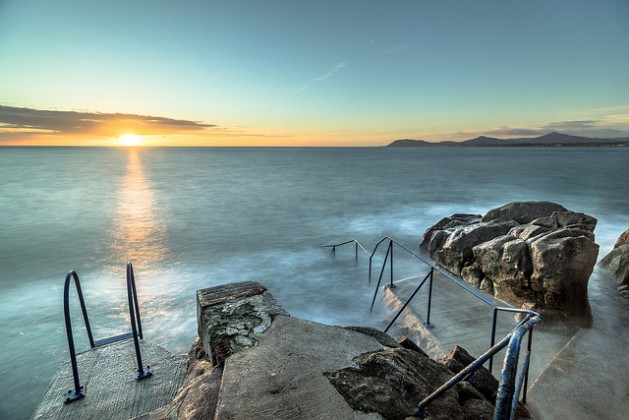
Hawk Cliff is a hidden swimming spot off of Vico Road in Dalkey. This little pool is also known as “The Vico” or “The Ramps.” Jump in the clear seawater and pause to acknowledge the beautiful, white mansions on Sorrento Terrace.
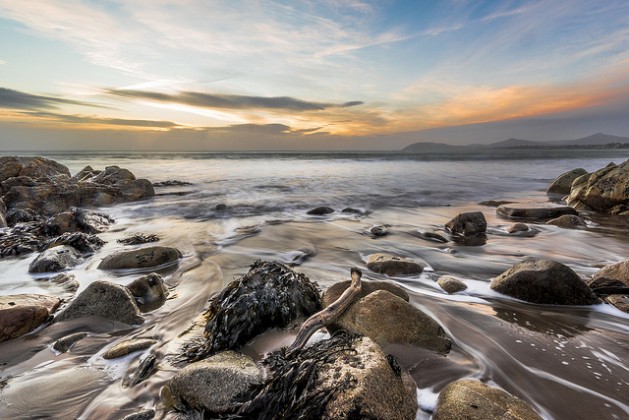
You may wish to stay on White Rock Beach instead, which is also right off of Vico Road in Dalkey. This little getaway has a scenic view of the bay and is only a short distance from Killiney Hill.
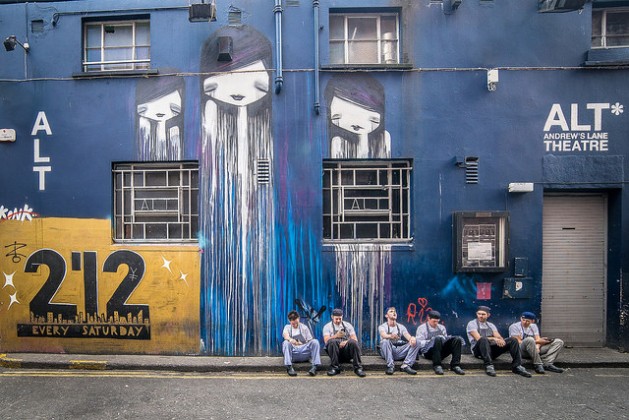
Dublin is the capital and largest city of Ireland. Don’t overlook the hub of contemporary art offered around the city. Be sure to visit one of Dublin’s art museums, such as the Irish Museum of Modern Art.
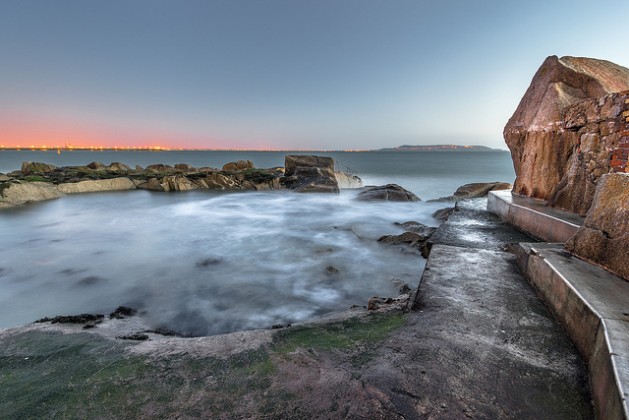
If you’re looking for a peaceful seaside resort, look no further than Sandycove in Dublin. Here you’ll find the “Forty Foot,” which used to be a males-only bathing place, but now is a popular swimming spot.
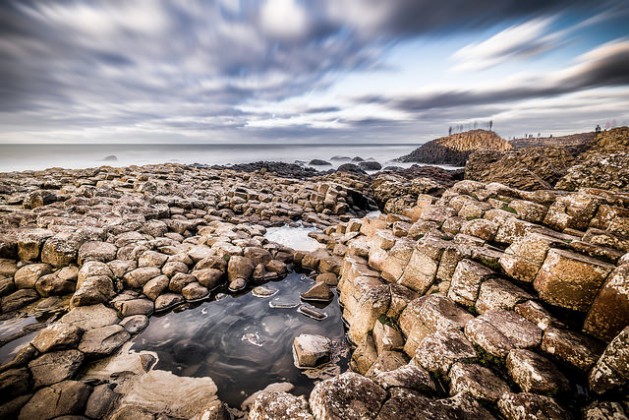
The Giant’s Causeway is a rare site to be sure. The landscape consists of about 40,000 interlocking basalt columns that came from an ancient volcanic eruption. You will definitely want to see this scenic spot, as it is the UK’s fourth greatest natural wonder.

At the tip of Howth Head in Dublin you’ll find the Baily Lighthouse, which is run by the Commissioners of Irish Lights.
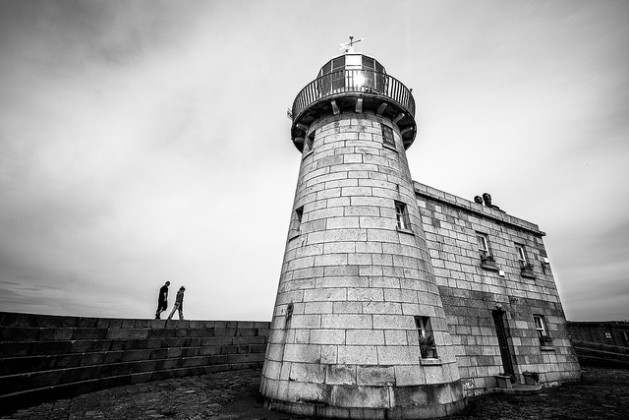
Here is the Baily Lighthouse in Howth pictured again up close. Howth is home to the oldest occupied buildings in Ireland, Howth Castle. Visit Howth for some therapeutic birdwatching and sailing.
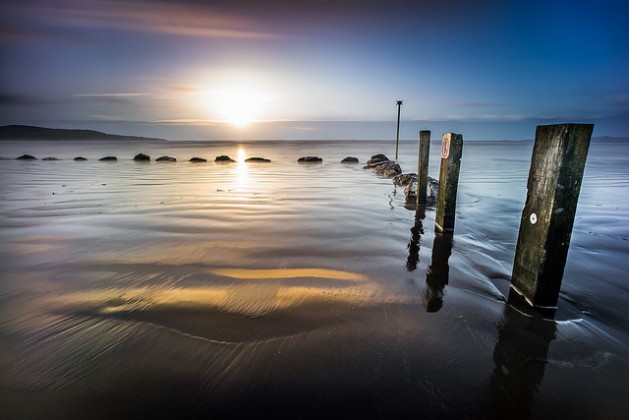
Also known as North Bull Island, this Irish spot is located in Dublin Bay. The sandy beach that runs the length of the island is called the Dollymount Strand. Looking for adventure? Just recently, Bull Island has become a hot spot for kite-surfers.
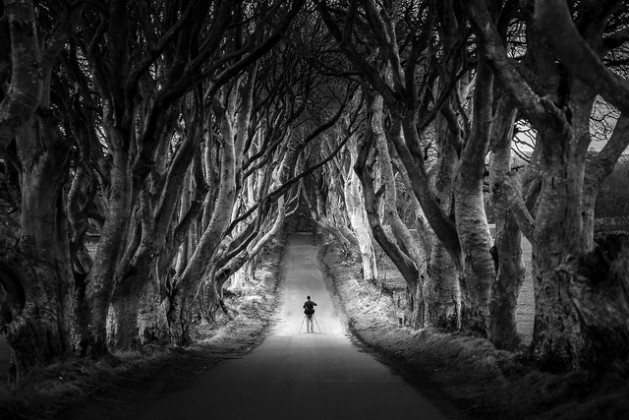
By far one of the most fantastical scenes in Ireland, the Dark Hedges in Northern Ireland are rows of Beech trees curving in obscure directions. The trees were planted by the Stuart family in the 18th century as a lavish entryway to their manor.
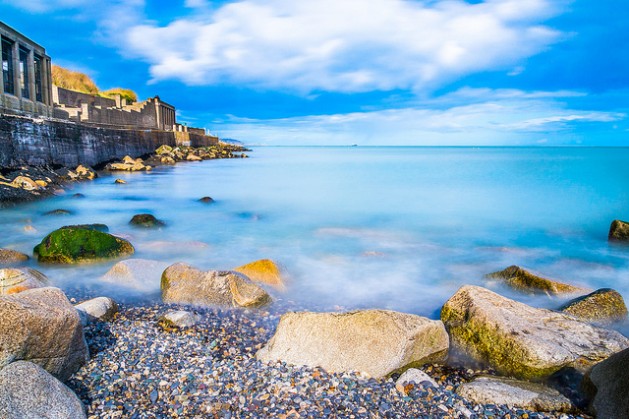
Dun Laoghaire was a former port for Britain. Nowadays the seaside town offers a marina, boating, golf, Dublin Bay Cruises and outdoor tourism.
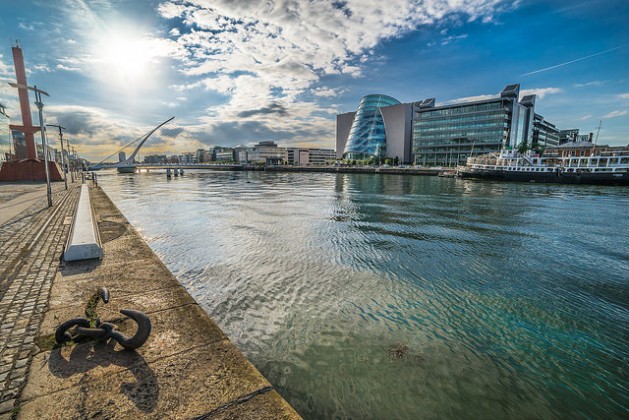
The Liffey River runs through the center of Dublin. Expect to see rowing, swimming, fishing, canoeing and other recreational activities.
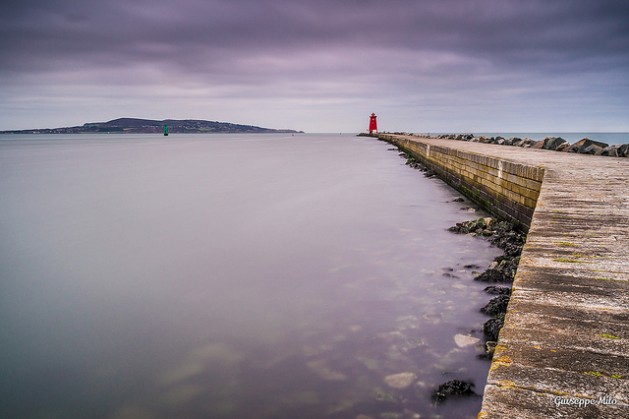
The Poolbeg Lighthouse originally operated on candlepower when it was built in 1768. The current lighthouse was rebuilt in 1820. This picturesque landmark is located on the Great South Wall at the Port of Dublin.
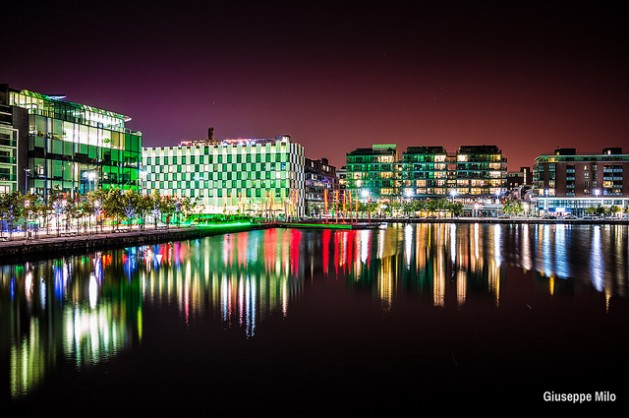
The Grand Canal connects Dublin to the River Shannon. The canal stretches across various villages, including Tullamore.
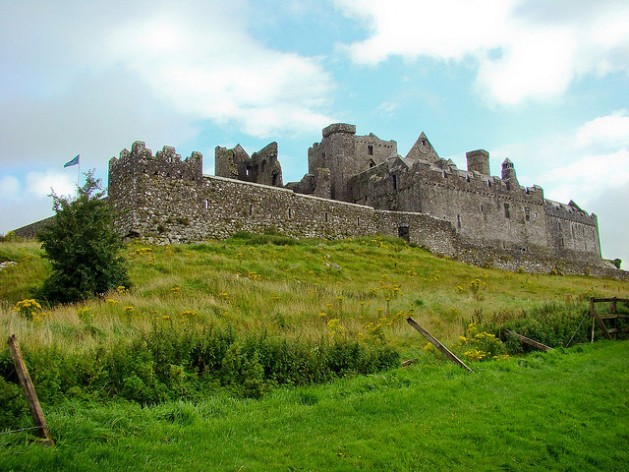
The Rock of Cashel in Tipperary is a 200 feet fortress with a castle, cathedral, abbey, chapel, round tower, high crosses and a large stone wall. The impressive site dates back to the fourth century AD, when the Eoghanachta clan held the royal seat. Explore the ruins and climb to the top, if you dare.
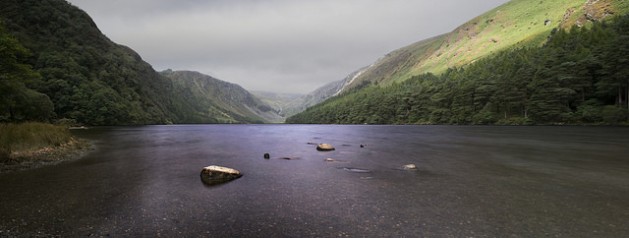
The Upper Lake is situated between the Wicklow Mountains in Glendalough. Near the lake, you’ll discover monuments like the Reefert Church, St. Kevin’s Cell and The “Caher.”
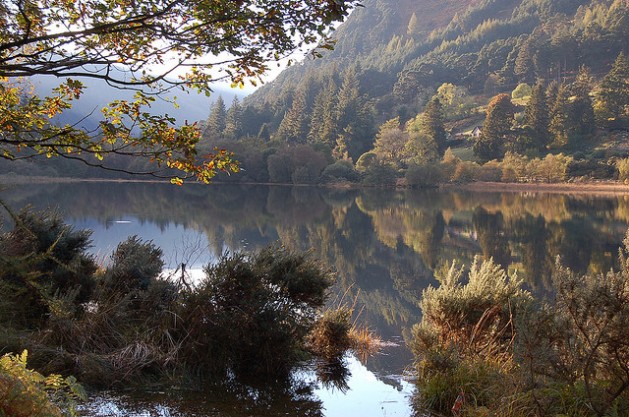
This is the Lower Lake, the second of the two lakes in Glendalough’s Wicklow Mountains. It doesn’t get more relaxing than this.
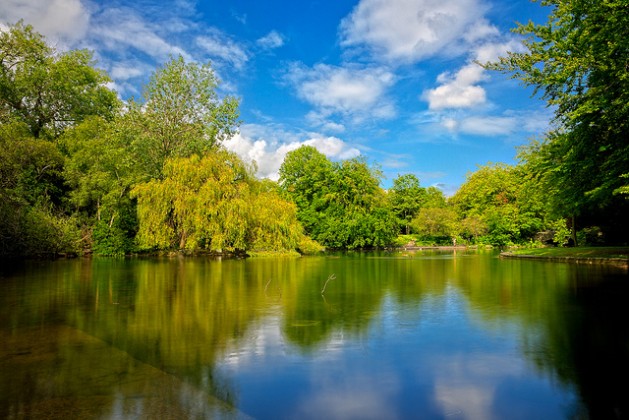
Take an inspirational stroll through St. Stephen’s Green, Dublin’s public park. William Sheppard designed the present landscaping of the park, which first opened in 1880.
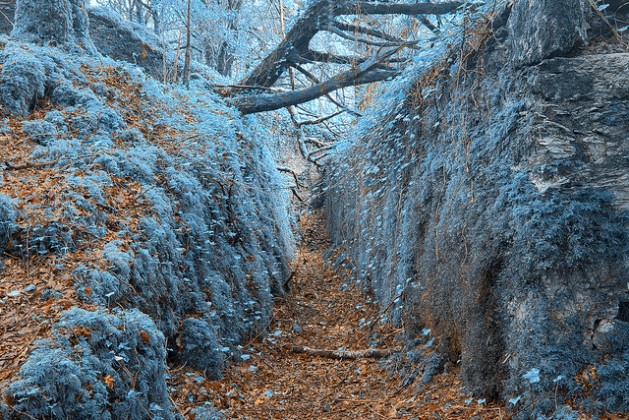
This mystical scenery is from the Ancient Sapphire Forest Trail in Killarney Park, Ireland.
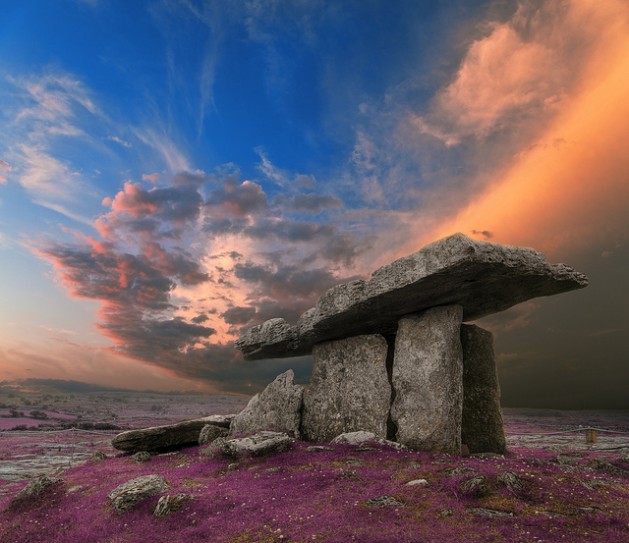
Poulnabrone Dolmen means “hole of the quern stones.” This portal tomb is located in the Burren, County Clare and dates back to the Neolithic period.
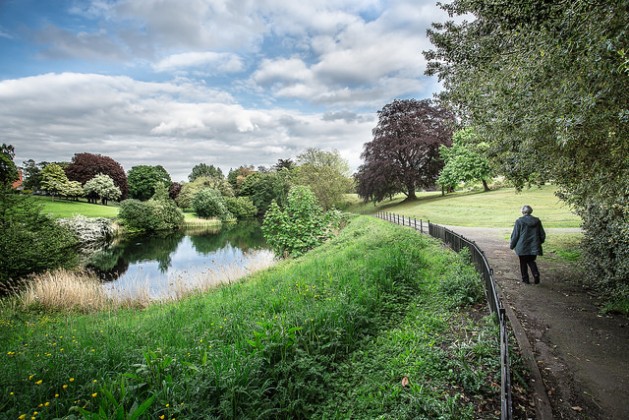
Phoenix Park is another park in Dublin, west of the city center. The park was founded in 1662 by James Butler, Duke of Ormond, on behalf of King Charles II.
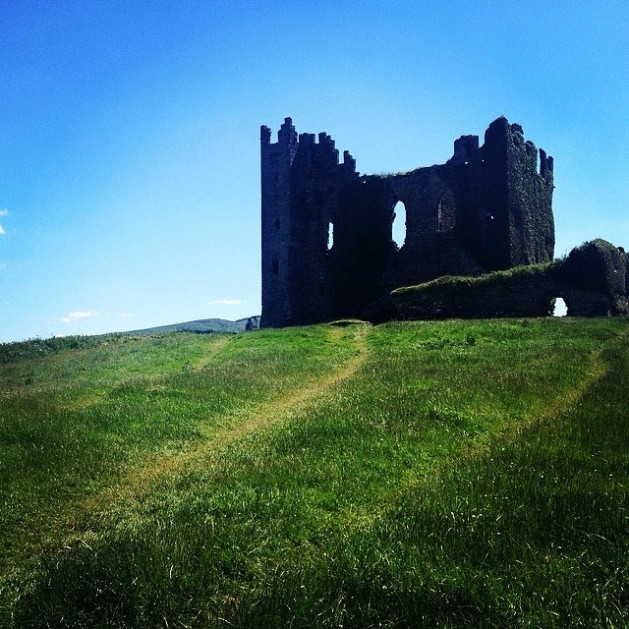
Nestled in County Kerry, Ballycarbery Castle is surrounded by lush green land and faces the sea. The castle is a short distance from Cahergall Fort and Leacanabuile Fort.
The Dunguaire Castle on the shore of Galway Bay features a 75-foot tower and defensive wall. The grounds of this 16th-century tower house are open in the summer.

